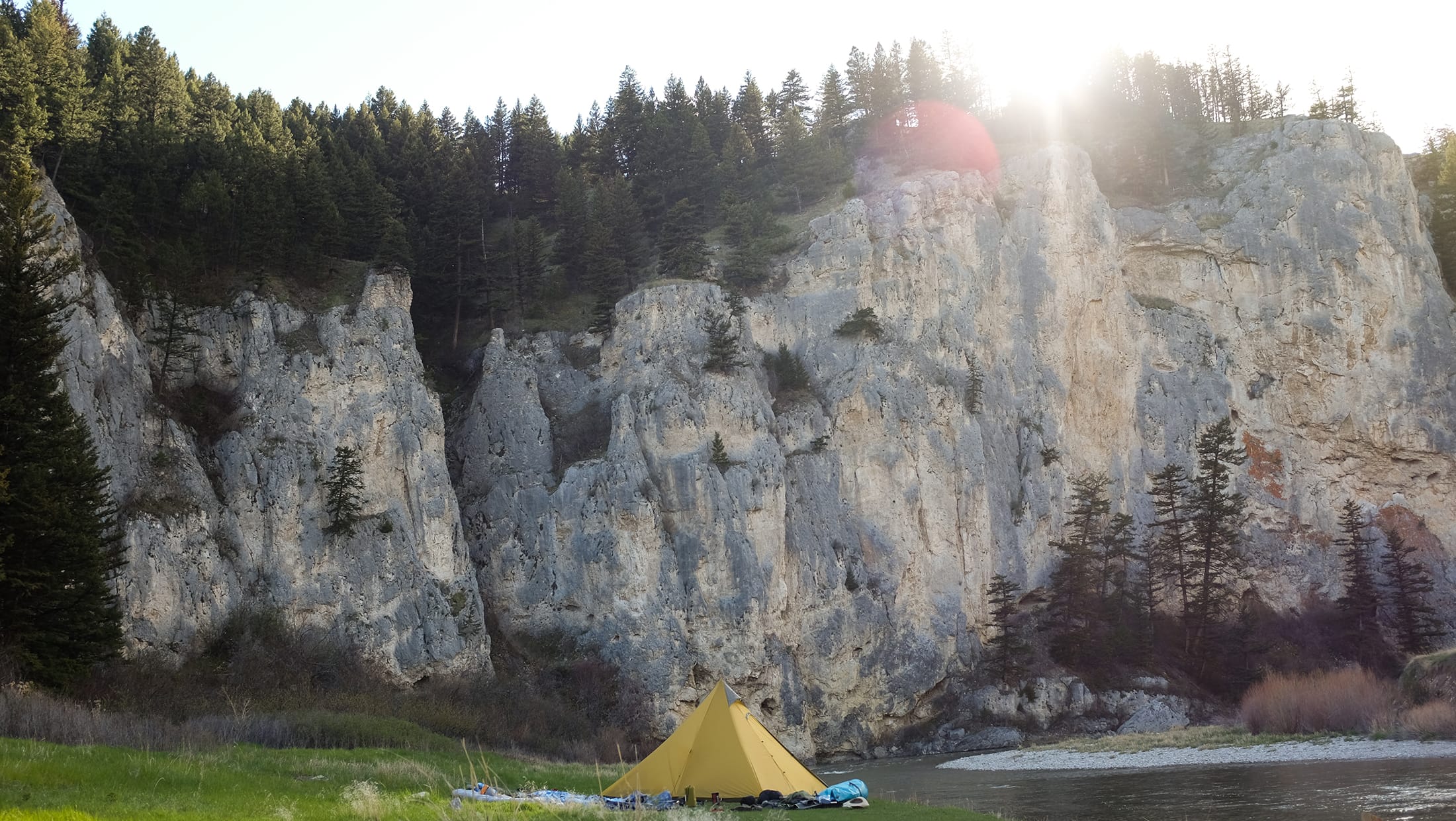The battle over protecting Montana’s unparalleled Smith River continues.
Located in west-central Montana, the Smith is the only river in the state that requires a recreational permit. Boaters embark on a remarkable float, totaling nearly 60 miles over several days, through towering limestone cliffs, incredible canyons, and pristine wild trout waters. We have said it before, but we will say it again (and again): we must save the Smith.

In 2014, Australian-owned mining company, Titina proposed a large scale mine on Sheep Creek, the most important spawning tributary of the Smith River – with subsequent plans to expand it onto public lands. For over a decade, Trout Unlimited, Montana Trout Unlimited, and our partners have been fighting to protect the Smith River from harmful mining practices and pollution.
This week, the Montana Supreme Court ruled in favor of the Black Butte Mine – a disappointing step backwards in the fight for protection. David Brooks, Executive Director of Montana Trout Unlimited released the following statement:
We are stunned and saddened to share that we just received word of the Montana Supreme Court ruling in favor of the Black Butte Mine in the Smith River. On February 26, the Court overturned our lower court victory on both the MEPA and MMRA claims we filed against the Black Butte Mine and DEQ. Thus, the Australian-owned, Tintina Company will be reissued its permit to build an industrial copper mine along the most important trout tributary to our beloved Smith River. This marks another sad example of Montana’s lenient mining and permitting laws allowing for the development of a large-scale, high-risk mine to be built without proper regard for the other values of a place, including its water quality, quantity, fishery, wildlife, recreational opportunities and cultural heritage. It is also another example of the will of the majority of Montanans, expressed in your donations, letters, phone calls, time and love for this Montana treasure being thwarted by the single value of an extractive industry.
As you know, MTU joined National Trout Unlimited, MEIC, Earthworks, and American Rivers with legal representation by Earthjustice, to defend the Meagher County District Court decision that the MT Department of Environmental Quality (DEQ) did not properly or sufficiently evaluate the risks this mine poses to water quality, quantity and the Smith fishery under Montana mine permitting laws. The MT Supreme Court heard this case on June 21, 2023 and has now issued this decision.
Fortunately, our fight to protect the Smith River from this mine is not over. We cannot appeal the MT Supreme Court decision. But we will continue to pursue our coalition’s water rights claims against the mining company, now in front of the MT Supreme Court, to be heard on March 29, 2024. We are also deeply committed to establishing a mineral withdrawal on public lands in the Smith watershed that will provide invaluable protection for the river and its many attributes for decades to come. A victory on the water rights claims would disallow this mine to be built. A successful mineral withdrawal will ensure that this or any other mine could not expand beyond private land, under tributaries or onto public lands. In addition, we will continue to hold the agency and the company accountable for protecting the Smith River.
As long as the mining industry sees the single, monetary value of metals underground in this place and our laws favor hardrock mining over all other resource uses or values, there is the threat of mining. The Courts narrow reading of Montana’s laws has not changed our evaluation: Wrong mine, wrong place.
As our next steps become clearer, we will keep you informed.
Onward,


As we wait for the Montana Supreme Court hearing on March 29, we must not let up on the fight to save the Smith River. MTU and Trout Unlimited are continuing to protect the Smith by encouraging the U.S. Forest Service to stop potential public land mining in the area through mineral withdrawal.



